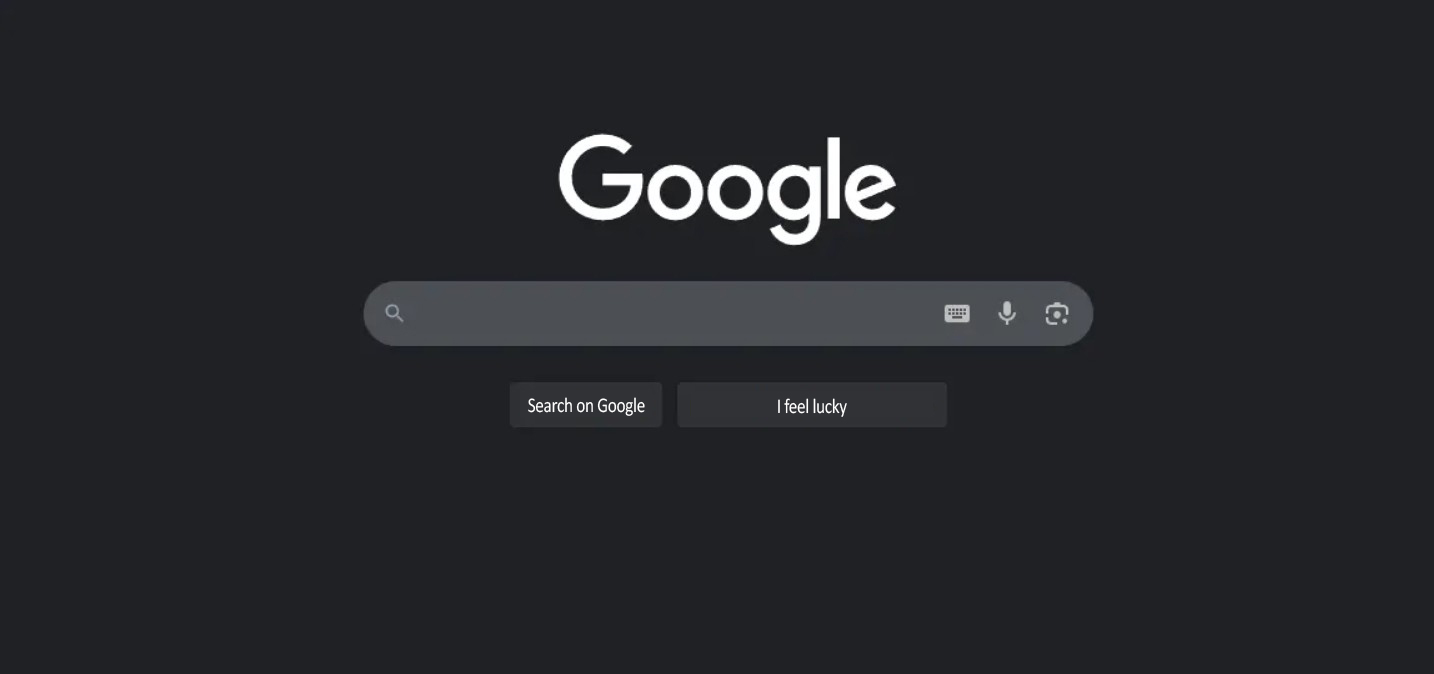The best search engines are platforms that enable users to access information on the internet as quickly and accurately as possible. Each stands out by offering different algorithms, security levels, and ease of use. Some process billions of searches on a global scale, while others are preferred for their privacy-focused solutions. Thanks to this variety, users can choose the one that suits their needs.
In the digital age, choosing the right search engine affects not only access to information but also security and speed. Some engines offer comprehensive results with large databases, while others stand out with a minimal interface by reducing ads to a minimum. Knowing the alternatives that suit user habits is therefore important.
The popularity of search engines is linked not only to search results but also to the additional services they provide. Those offering integrated services such as email, cloud storage, news, and shopping take up more space in users’ daily digital lives. Thus, the search experience is not limited to accessing information—it becomes a structure that meets different needs under one roof.
The Most Used Search Engines in the World (2025)
The most used search engines in the world are the platforms preferred by billions of users in their daily search for information. A large portion of the content on the internet is discovered through these engines, which determine how quickly users reach accurate information. The leading names on a global scale differ from each other with their distinct features and the experiences they offer.
The most popular search engines
- Bing
- Yahoo
- Baidu
- Yandex
- DuckDuckGo
- Ask
Each of these search engines has a strong user base in different regions. While Google is far ahead in most parts of the world, Baidu dominates in China. Yandex is preferred especially in Russia and surrounding areas, while DuckDuckGo stands out with its privacy-focused approach. Thus, users can turn to different options depending on their needs, security expectations, and regional preferences.
1: Google
Google stands out by a wide margin as the most used search engine worldwide. Thanks to its advanced algorithms, it accurately analyzes user intent and delivers the most relevant results. Its fast results, user-friendly interface, and integrated services make it an indispensable part of daily internet use.
Beyond search, it has expanded its ecosystem with integrated services such as Gmail, YouTube, and Google Drive. Therefore, users can meet different needs on a single platform. Google’s constantly updated algorithms push quality content to the top, increasing trustworthiness.
2: Bing
Microsoft’s search engine Bing is known for its compatibility with the Windows operating system and the Edge browser. It stands out with strong results in image search and user-friendly features. Although not as widespread as Google, it has a significant user base, especially in the USA.
Bing stands out with integrations for advertising and the business world. Thanks to its connections with LinkedIn, Microsoft 365, and Outlook, it becomes a useful option for professionals. It also encourages users to stay longer on the platform with a rewards points system.
3: Yahoo
Yahoo was once the most used search engine in the world and still retains a certain user base. It provides services in different areas by working in an integrated way with offerings such as news, email, and finance.
Although it has not advanced as fast as Google in search technology, it is strong as a content portal. Reliable information provided by areas like Yahoo News and Yahoo Finance leads users to prefer this engine.
4: Baidu
Baidu, the most widely used search engine in China, controls a large part of the country’s internet market. Its structure, optimized for Mandarin, delivers results suited to the needs of local users.
Baidu offers not only search but also music, maps, video, and cloud storage services. Since access to Google is restricted in China, Baidu is the undisputed leader in the region’s digital ecosystem.
5: Yandex
Yandex has a strong position especially in Russia and neighboring countries. Known worldwide for its maps and navigation services, it provides users with comprehensive solutions in different areas.
As a search engine, Yandex stands out by delivering results optimized for local languages. It also builds a broad ecosystem with email, cloud storage, and advertising solutions. Thanks to its strong regional position, it is also recognized in the global market.
6: DuckDuckGo
DuckDuckGo is a search engine that stands out for its privacy-focused approach. It does not store user data, does not track personal information with cookies, and does not use targeting in ads.
It has become popular especially for users who care about internet security. With its minimalist design, it provides a fast and simple search experience. With ad-free and unbiased results, it forms a distinctive alternative.
7: Ask
Ask was originally known as “Ask Jeeves” and is a search engine built on a question-and-answer model. It was developed to find answers to questions written in natural language.
Although its popularity has decreased, it still has a certain user base. It is particularly suitable for people seeking simple and direct answers. Its clean design offers easy use.
Google’s Popularity and How It Differs from Competitors

Google’s popularity stems from the accuracy and speed it delivers in search technologies. Its AI-powered algorithms developed to correctly understand user intent provide the most relevant results in the shortest time. This has made Google more than just a search engine—it has become an indispensable part of the daily lives of billions of people around the world.
Its difference from competitors lies in its ever-evolving infrastructure and integrated services. The ecosystem it has built with services such as Gmail, YouTube, Google Maps, and Drive allows users to meet their needs on a single platform. This gives Google a much broader scope of use compared to its competitors. At the same time, with updates that determine quality in search results, it also serves as a guide for content creators.
Although alternative search engines stand out with privacy, local content, or ad policies, Google maintains its leadership with a globally accessible database and a structure that analyzes user habits. Processing billions of searches every day, this giant platform offers a search experience that is much faster, more reliable, and more comprehensive than its rivals, setting the standards in the digital world.
The Best Privacy-Focused Search Engines
The best privacy-focused search engines allow users to search without collecting or tracking personal data. For those who want a secure experience on the internet, these engines are a strong alternative. There is no tracking via cookies, no search history is stored, and results are presented in a neutral manner.
Standout privacy-focused search engines
- DuckDuckGo
- Startpage
- Qwant
- Swisscows
- Mojeek
These engines are preferred especially by users who do not want their personal data used for marketing purposes. With simple interfaces and transparent privacy policies, they create a sense of trust. In addition, offering an ad-free or minimally ad-supported experience provides a calm and focused search process on the web.
The Most Preferred Search Engines in Turkey
The most preferred search engines in Turkey are shaped by user habits and technological access. While the vast majority of internet users prefer leading global platforms, different options also find a place in local usage. Although competition is limited, different search engines manage to attract certain audiences with the features they offer.
Search engines that stand out in Turkey
- Google: The clear leader. As the default option on both mobile devices and computers, it handles the majority of daily internet searches.
- Yandex: Has gained recognition in Turkey with its maps and navigation services and is preferred as a strong alternative especially for directions.
- Bing: Thanks to its integration with Microsoft’s operating system, it has a certain user base. It attracts interest for image search and reliable results.
- Yahoo: Although its popularity was higher in the past, it is still used by certain users in Turkey, especially for email and news services.
While users in Turkey mostly search via Google, Yandex, Bing, and Yahoo serve as alternatives for those with different needs or who prefer certain services. Thus, search engine usage across the country follows global trends while diversifying with local differences.
The Advantages of Yandex, Bing, and Other Alternatives
Alternative search engines such as Yandex and Bing offer practical advantages for different needs. Factors like localized result quality, strong image search, privacy options, shopping filters, and operating system integrations enrich the user experience. The right choice brings more than speed and accuracy; it makes daily search, work, shopping, and research more efficient.
Advantages and standout features
- Yandex Strong in local results, advanced maps and navigation services, quickly finds similar images in image search.
- Bing Offers native integration with Windows and Edge, effective image search and shopping tabs, enriches the answer experience with Copilot.
- DuckDuckGo Enables search without tracking, does not store search history, allows direct searches on popular sites with !bang shortcuts.
- Startpage Delivers Google results through a privacy layer, offers a proxy option to view pages without leaving a trace.
- Qwant Focuses on European privacy standards, minimizes tracking in results, provides a balanced experience in news and image tabs.
- Brave Search Relies on its own index, reduces tracking and ad load, allows tailoring of results to needs with Goggles filters.
- Mojeek Has an independent crawler and index approach, aims to provide unbiased results, offers a clean experience for niche searches.
- Swisscows Offers Swiss-based infrastructure and family-friendly filters, produces conceptual results with a semantic search approach.
Clarifying your priority makes choosing easier. If privacy and tracking control matter, DuckDuckGo, Startpage, or Brave Search will fit; if local results and map accuracy stand out, Yandex can be considered; for those working in the Windows ecosystem, Bing is an efficient option. By matching the search engine to your usage habits, you can achieve a faster, safer, and more focused experience.
Which Search Engines Deliver Fast Results
Search engines that deliver fast results make the internet experience more efficient by enabling users to access information in the shortest time. These engines process queries in seconds with strong algorithms and broad server infrastructures, providing instant results. Minimizing wait time makes users prefer these engines more.
Google leads in this regard, while Bing and Yandex also stand out with quick response times. Privacy-focused options like DuckDuckGo and Startpage also draw attention by offering both secure and fast experiences. For mobile users in particular, speed has become as important as accurate results.
The speed advantage comes not only from technical infrastructure but also from how results are arranged. Engines that offer instantly accessible content via image, video, shopping, and news tabs provide responses tailored to user needs. Thus, speed and practicality are offered together, making the search experience more satisfying.
Search Engines with Ad-Free and Minimalist Interfaces
Search engines that provide an ad-free and minimalist interface allow users seeking information online to reach results quickly without distractions. These engines are particularly attractive for those overwhelmed by ads and wanting a cleaner search experience. Their simple designs increase loading speed and allow users to focus directly on the information they need. This approach makes the search process more efficient and calm.
DuckDuckGo, Startpage, and Mojeek are among the leading examples in this area. DuckDuckGo offers a safe and clean experience thanks to its privacy policy and simple design. Startpage displays Google results without ads and tracking, providing a unique experience for the user. With its independent indexing system, Mojeek features less visual clutter and avoids distracting the user. What these engines have in common is making access to information as straightforward as possible without forcing any additional content on the user.
The benefit of ad-free search engines is not limited to visual simplicity. They also increase page loading speed, do not strain device performance, and ensure secure use. While making it easier for users to focus on the content they are interested in, they help obtain clearer results, especially in business and academic research. Thus, the distraction caused by unnecessary ads disappears, and users enjoy a more mindful search experience.
The Best Search Engines for Academic and Scientific Research
The best search engines for academic and scientific research stand out by directing users to accurate and reliable sources. These engines not only offer academic content such as articles or theses but also provide access to scientific journals and university libraries. These tools, which provide great convenience for students, academics, and researchers, offer quick access to reliable information.
Platforms such as Google Scholar, ResearchGate, Microsoft Academic, and PubMed are among the most used academic search engines. Google Scholar stands out for its very large database, while ResearchGate provides opportunities for sharing and collaboration among researchers. PubMed is a reliable resource for studies in medicine and biology. Microsoft Academic, with its AI-supported algorithms, suggests the most relevant scientific works to the user.
The advantages provided by these search engines are not limited to access. Features such as citation tracking, source recommendations, related literature scanning, and access to open-access papers make research processes easier. Thus, accessing scientific information becomes more systematic and efficient, and users can strengthen their work with reliable sources across different disciplines.
Is Google the Best Search Engine for Mobile Users?
Choosing the best search engine for mobile users is very important in terms of speed, accuracy, and ease of use. At this point, Google stands out with its strong infrastructure and mobile-friendly design. Its capacity to process billions of searches on mobile devices meets user expectations in both speed and accuracy. In addition, its clean interface, layout optimized for mobile screens, and instant suggestions make the mobile experience even more convenient.
One of the advantages Google offers on mobile is voice search. Users can search with a single tap or voice commands, which is a great convenience especially on the move. Thanks to location-based results, nearby businesses, restaurants, or services can be found within seconds. When the speed and accuracy sought by mobile users combine with Google’s technologies, it becomes an indispensable part of daily life.
Although alternative search engines offer mobile-friendly versions, Google’s reach and constantly evolving mobile algorithms set it apart. Thanks to user habits, ecosystem integration, and its continuously updated structure, Google remains the platform that sets the standard in the mobile search experience. Therefore, the majority of mobile users prefer Google, and this preference grows stronger each day.
Search Engines Expected to Stand Out in the Future
Search engines expected to stand out in the future are preparing to take the internet experience to a different level with AI and privacy-focused technologies. These engines, which better understand users’ needs, protect personal data, and present unbiased results, appeal especially to the expectations of the new generation of internet users. Speed, security, and personalization will be at the forefront in search processes.
Notable future-focused search engines
- Brave Search: Stands out with its independent structure using its own index, offering privacy and an ad-free experience.
- Neeva: Aims to provide ad-free and personalized results with a subscription model.
- You.com: Delivers a next-generation user experience with AI integration and a customizable interface.
- Ecosia: Draws attention with its eco-friendly approach by directing search revenue to tree-planting projects.
- Mojeek: Considered one of the alternatives offering unbiased results with an independent indexing system.
These new-generation search engines are gaining importance not only in terms of access to information but also in terms of user values and digital ethics. As expectations for privacy increase, ad-free, transparent, and environmentally conscious solutions will be preferred more. Thus, the search experience in the future will be shaped not only by speed and accuracy but also by trust and sustainability.
Frequently Asked Questions
We’ve gathered common questions about choosing a search engine, privacy, speed, and usage scenarios here.


























Do Comment